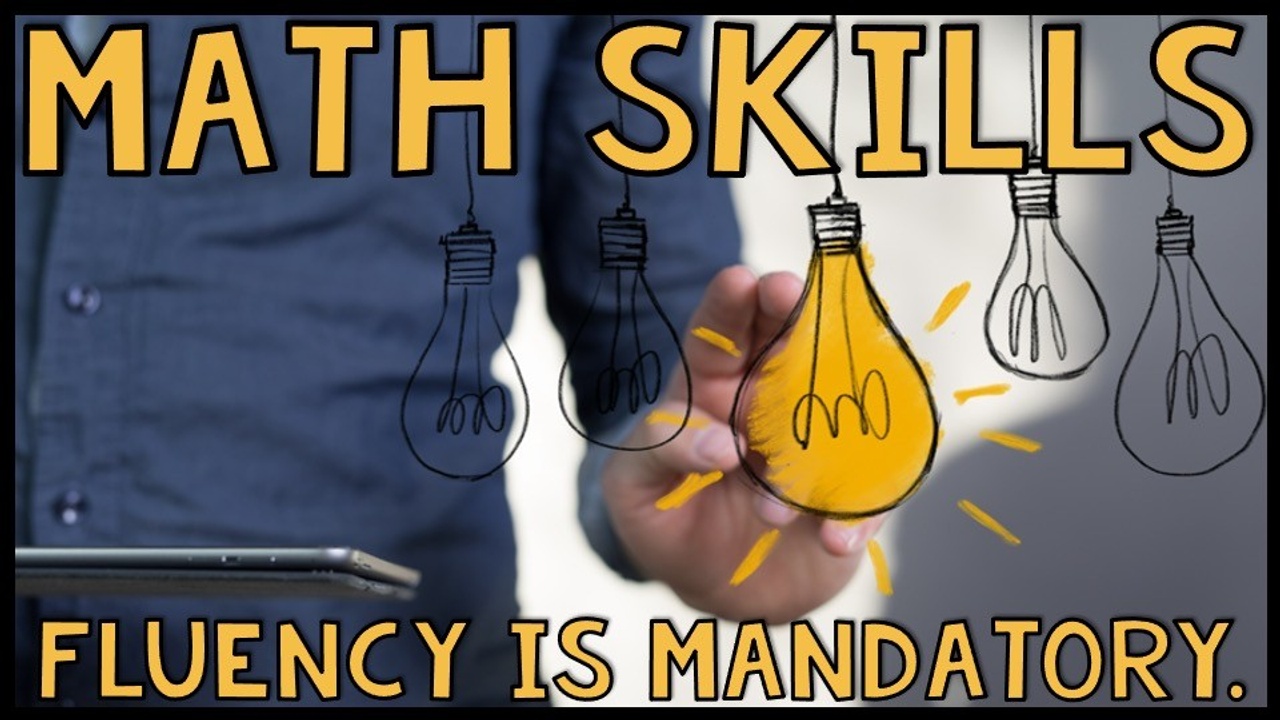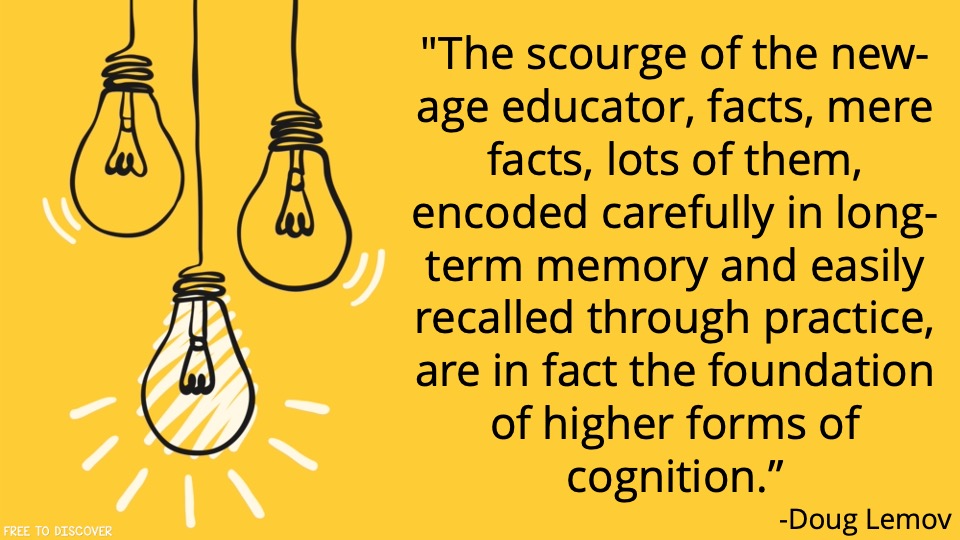
Math skills fluency is mandatory.
There, I said it. Math skills fluency is mandatory. I've been reading all the posts about why we need to stop drilling skills, striving for quick recall, and giving timed assessments. I am not part of that camp at all, and today I'm sharing why the research is on my side.
From Working Memory to Longterm Memory
Let's talk about the brain! Working memory is the brain's ability to dedicate attention to one or two tasks at a time. Working memory is also short-term memory. It is our goal as teachers to help students move knowledge from working memory to longterm memory. According to Lemov (2021), students commit information to longterm memory after an average of three meaningful exposures to a skill or concept. Once a learned skill moves to longterm memory it can be more easily recalled and applied without actively thinking through what to do. In Teach Like a Champion 3.0,* Lemov (2021) shares "This is why reading fluency and automaticity with math facts are critical - they are necessary because we don't want students thinking about these things at crucial moments, and fluency is the only way around the problem of working memory." Students need to drill math skills to move that knowledge to longterm memory so they can quickly recall it when working through other problems. (*Disclosure: This is an affiliate link. As an Amazon Associate, we may receive a commission from Amazon at no additional cost to you.)
Multiplication Facts Through Factoring
Math facts - addition, subtraction, multiplication and division - are embedded in everything else students will learn. Using a calculator or multiplication chart to look up 4x7 while learning about proportional relationships is not feasible. Slowing down to calculate basic math facts while factoring polynomials is not a solution. Yes, they will always have a calculator in their pocket but that doesn't mean that 8x6 shouldn't come to them automatically. Students need to recall facts quickly and without effort. Their working memory should focus on the big concepts and connections between numbers - not basic, rote skills. According to hand2mind.com, "Daily Math Fluency develops automaticity of basic facts which relies on thinking about the relationships among the facts." The process of moving math facts from working memory to longterm memory is inherently valuable because students are making connections between numbers as they do so. These connections will serve them well throughout all math classes.
Reduce Frustration and Increase Math Confidence
You have a student who is struggling to learn their math facts or may have very slow recall, and your solution is to cease or pull back on that process? No way! An article by differentiatedteaching.com summed it up best, "If a student has to draw a picture or make a number line each time they need to add or multiply, it is only a matter of time before they begin to struggle to keep up" (Davies 2022). Using alternative solutions to math fact fluency will not yield better results in the long run. Students who do not develop automaticity will hit roadblocks every year, unit, and lesson. Of course the expected result of this is frustration and a distaste for mathematics. Pushing students to practice - even taking more time than is allotted in your curriculum - will help increase math confidence and enjoyment in the long run.

First Skills. Second Higher Order Thinking.
Because of the limitations of working memory, the embedment of math facts in every other math concept, and the goal of developing math confidence in students, math skills fluency is mandatory and must come first. But that does not mean that problem solving and higher order thinking go by the wayside. According to Lemov (2022), "The scourge of the new-age educator, facts, mere facts, lots of them, encoded carefully in long-term memory and easily recalled through practice, are in fact the foundation of higher forms of cognition." Strong math skills make problem solving possible. Instead of approaching math problems with fear and hesitation, students will be more likely to take on challenging tasks with confidence and curiosity. At the time I am writing this I have taught nearly 1,000 students, so I am basing this assessment on countless observations as well as the cited research. Even Benjamin Bloom, creator of Bloom's Taxonomy said, "Creativity follows mastery, so mastery of skills is the first priority for young talent."
So, yes, math skills fluency is mandatory. Set students up for success with a strong skills foundation so that they may continue to build on that foundation with additional math skills, advanced problem solving strategies, and higher order thinking tasks. Persevere with students even when the challenge seems impossible. And most importantly, continue to balance rote skills and traditional learning with outside-the-box problem solving. Together skills and concepts create the formula to success!
References
Davies, R. (2022, September 13). The truth about math fact fluency (..you'll be surprised). Differentiated Teaching. Retrieved October 14, 2022, from https://www.differentiatedteaching.com/math-fact-fluency-matters/
Hand2Mind. (n.d.). Benefits of building math fluency - hand2mind.com. Hand2Mind. Retrieved October 14, 2022, from https://www.hand2mind.com/benefits-of-building-math-fluency
Lemov, D. (2021). Five Themes: Mental Models and Purposeful Execution. In Teach like a champion 3.0 (pp. 1–35). chapter 1, JOSSEY-BASS INC, US.

Join the Free to Discover community!
When you subscribe, you'll access our FREE monthly newsletter for secondary math students!

